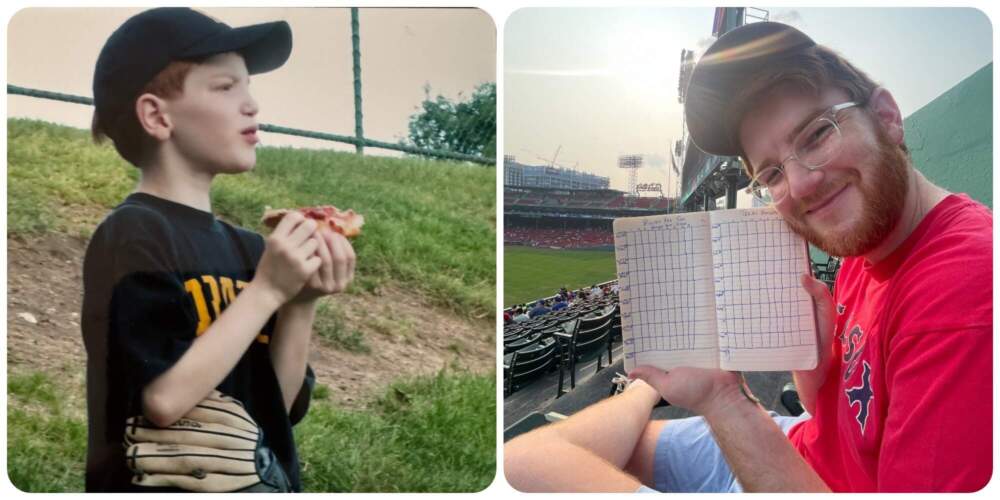Advertisement
Commentary
A fond farewell to Joe Castiglione, captain of the Red Sox Radio Network

There’s something transcendent about the soundscape of a baseball broadcast: wood and leather dueling, stadium jingles flaring, sonic sands shifting as the crowd roars, sighs, settles. The breath of thousands hangs on tiny motions of bat and ball, carried mile after mile on waves of AM static, all the way to you. And you breathe, too, wherever you are, with the sweet rhythm of the game.
I grew up on that sound, relishing my link with Fenway Park across the rich velvet of the Massachusetts night. I hung on the tiny interval of space and time before a crack of the bat six miles away would fill my darkened bedroom in the soft summer air. At 8 years old, I imagined myself aboard the ship of night, awash on the sea of static that was 850-AM—captained by Joe Castiglione, the voice of WEEI, the Red Sox Radio Network. When he retires at the end of this season, I will rank among the last generations to grow up on the wave of that precious, magical sound.
When it comes to radio, baseball listeners are left to believe only in what they can hear. There are no lineup cards, no stat lines, no superimposed strike zone—just the belief that, somewhere out there at the end of the wavelengths, something meaningful is happening. Joe Castiglione’s voice was the center of that belief.

Before long, that belief became trust. In the electric tension of a close game, I learned to read the shape of a play from tone alone, tracking Joe’s mounting hope as a shallow fly ball dropped, dropped, dropped—and we went flying around the bases on his manic joy. I took comfort in his sure, steady recognition of a game slipping away, because implicit in his voice was the promise of another one.
Frequently described as “nasal” and even “comparatively thin,” I’ve always found the high, excitable Castiglione register grounding—an indelible presence, as solid and reliable as the granite under our topsoil. Braided with time, with wisdom, with thousands of New England nights, his voice has become a host unto itself, ferrying generations of fans across the ethereal deeps of radio baseball. I savored that sound all the more for its fragility. A wavering AM signal was the mark of something precious, something that, like a baseball game, could be lost—and found again.
There’s nothing like baseball to teach you that the meaning of something hinges on your commitment to it.
There’s nothing like baseball to teach you that the meaning of something hinges on your commitment to it. It shows you how to love—passionately and unreservedly, but with the capacity for forgiveness and renewal. I heard this lesson in Joe’s balance of effervescence in victory and stoic resignation in defeat. Over four decades, as he guided generations of Red Sox fans through heartbreak and triumph, Joe showed us that baseball—and life—are not about winning, but about patience, and the undying capacity for joy.
Joe has had the grace to ease Red Sox nation out of our love story, but after September 29, his voice will no longer greet us every night to mark the start of another game. The honored end of his extraordinary career may ultimately coincide with the end of the very AM radio technology through which I first came to know his voice. Future generations will likely meet his successors through a medium with far less to teach us. Even the relative clarity of FM bands is giving way to the flat, sterile sound of digital streaming; the radios that echoed in my childhood have been replaced by phones. The technological illusion of a perfect signal obscures a greater loss: pristine signals are harder to cherish.
Advertisement
We have far more to learn from voices that fade in and out, calling us to listen a little harder, think deeply, and breathe slowly, waiting for the next pitch. For a few more days, at least, Joe’s voice will lead the way.

